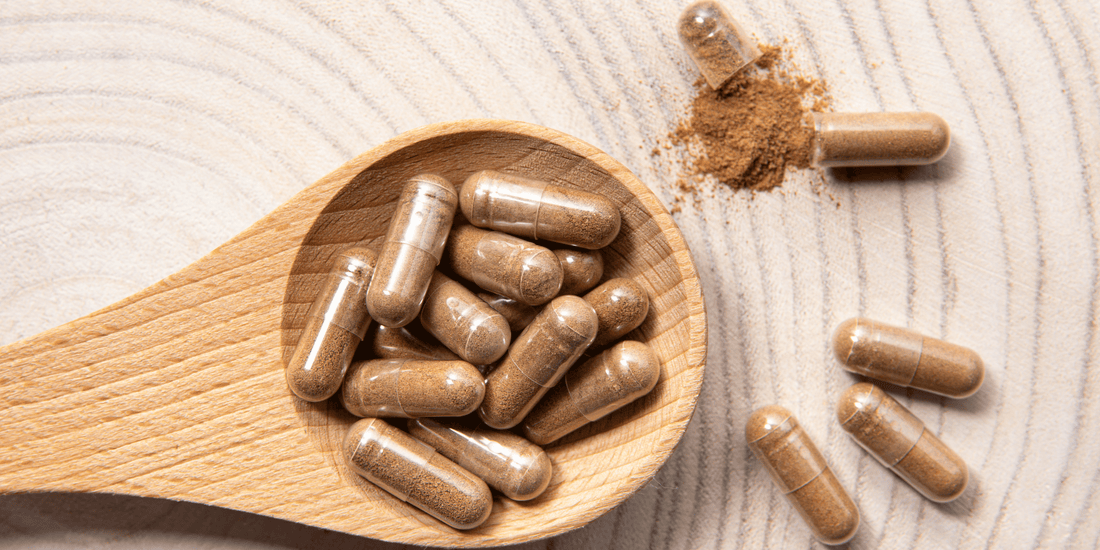
Why Ashwagandha and Other “Natural” Supplements Are Facing Global Bans — And What That Means for You
These are the kinds of reports that make us hit pause, dig into the data, and revisit what we recommend.
When the rules shift, we adjust. That’s how evidence-based wellness works.
The wellness world is built on trust - trust in the products we take, the labels we read, and the systems that keep us safe. But sometimes, the science catches up with what’s trending. And lately, that’s put some of the most popular herbal supplements - including ashwagandha - under serious scrutiny.
From full bans in Denmark to dose restrictions in Poland, regulators across Europe and beyond are tightening the rules on ingredients that used to fly under the radar. Why? Because what’s “natural” isn’t always simple, and sometimes, it’s not even safe.
So what’s really going on with herbal supplements like ashwagandha, kratom, and green tea extract? What should you know if you're taking them?
The Rules Are Changing: What’s Under the Microscope
From 2023 to 2025, countries around the world began restricting (or outright banning) several herbal ingredients due to safety concerns. Key players under the microscope include:
- Ashwagandha – linked to hormonal disruption and liver toxicity in high doses or poorly formulated products
- Kratom – associated with addiction and neurological effects
- Green tea extract – when highly concentrated, can pose liver risks
- Menopause herbs like red clover, black cohosh, dong quai are under review for safety, drug interactions, and liver concerns
Even melatonin is on watch in some markets.
For years, these ingredients were praised for their adaptogenic or hormonal benefits — often backed by centuries of traditional use. But tradition doesn’t equal approval. Today’s regulators demand clinical evidence, toxicology data, and rigorous documentation; especially as more people rely on supplements as daily health tools.
The Ashwagandha Backlash: Europe’s Patchwork of Rules
Ashwagandha’s rise (and regulatory fallout) is a case study in what happens when hype moves faster than oversight.
- Denmark banned it entirely in 2023, citing hormone and reproductive concerns
- Poland capped daily doses for safety
- France issued warnings for vulnerable groups — pregnant people, children, and those with liver, thyroid or heart conditions
- The UK is still collecting safety data, creating confusion for brands and consumers alike
For brands? This regulatory fragmentation has meant recalls, reformulations, and legal limbo. For customers? It’s created mistrust and a flood of misinformation online.
What This Means for You (and the Industry)
This shift matters, not just for businesses, but for real people navigating their health with the help of supplements. Here’s what we’re watching:
1. Label Confusion & Ingredient Anxiety
You’ll likely see ashwagandha vanish from some products, appear in others under different names, or come with stricter warnings. That’s not a red flag — it’s a reflection of a rapidly evolving regulatory landscape. We update our recommendations accordingly.
2. More Products, More Caution
Regulators are cracking down on adulterated supplements, products claiming to be natural but secretly laced with banned substances like steroids or sildenafil. That’s a major concern in the online supplement space, especially in categories like weight loss or sexual health.
3. Stronger Claims = Stronger Proof
Moving forward, you’ll see fewer vague promises like “balances hormones” or “boosts mood” and more demand for clinically-backed, regulatory-compliant claims. That’s a win for clarity, and one we welcome.
What You Can Do
If you’re using products with ashwagandha or similar ingredients:
- Look for standardised extracts and third-party testing (USP, NSF, etc.)
- Avoid anything that seems too strong, too cheap, or too good to be true
- Consider alternatives like rhodiola, magnesium, or L-theanine (especially in Europe)
So, is ashwagandha safe — and should it be recommended
Ashwagandha can offer real benefits for stress, mood, and energy, and many people use it safely. But it’s not risk-free, and it’s not for everyone. Recent concerns, especially around liver health and hormone disruption, mean it’s now under closer scrutiny in parts of Europe. For some, especially those who are pregnant, have thyroid or liver conditions, or take certain medications, it may not be appropriate. Like many natural compounds, its safety depends on the dose, the quality of the extract, and the individual taking it.
Source: Restrictions on Herbal Supplements including Ashwagandha | RegASK
